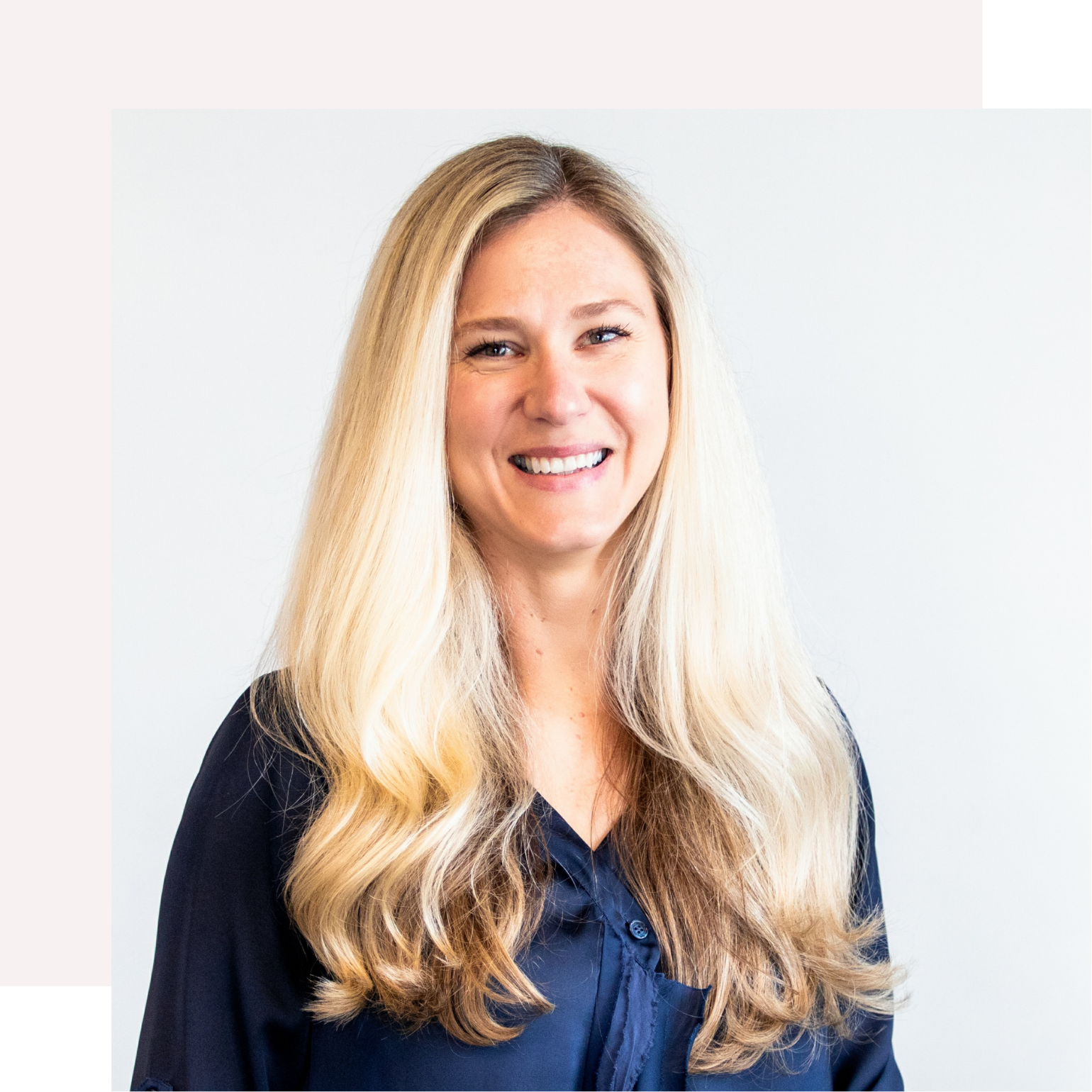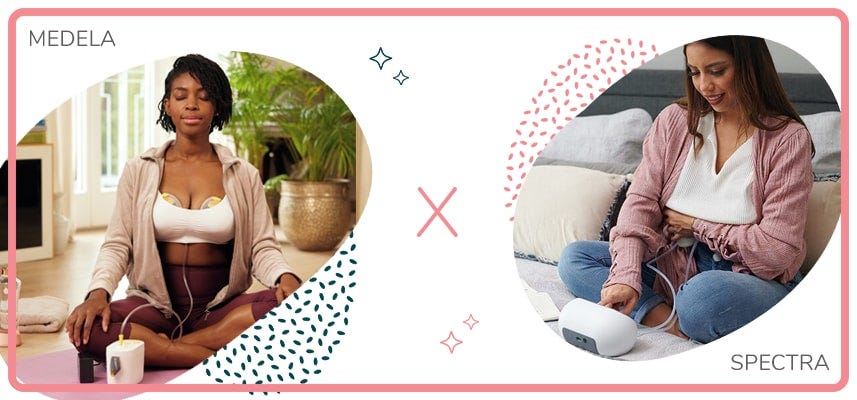Everyone’s breastfeeding and pumping journey is different, and some moms may find that they need a hospital-grade breast pump rather than, or in addition to, a personal pump.
If you’re wondering whether or not you need a hospital-grade pump, how they compare to regular pumps, or how to get a hospital-grade pump through insurance, we have the answers. Read through our collection of FAQs surrounding hospital-grade breast pumps below.
IN THIS ARTICLE:
What is a hospital-grade breast pump?
When is a hospital-grade breast pump needed?
How long will I need to use a hospital-grade breast pump?
What does it mean when a breast pump says it has hospital strength?
Hospital-strength breast pumps vs. hospital-grade breast pumps
Hospital-grade breast pumps vs. standard double-electric pumps
What are the benefits of using hospital-grade breast pumps?
What are some challenges of using hospital-grade breast pumps?
Does Aeroflow Breastpumps work with my insurance to provide a hospital-grade breast pump?
Do I qualify for a hospital-grade breast pump through my insurance?
If I qualify for a hospital-grade rental pump, what will my insurance require?
How long will my insurance allow me to rent a hospital-grade breast pump?
Can I rent the Medela Symphony out of pocket?
Does my insurance cover the cost of purchasing a Medela Symphony?
How can I get more information about hospital-grade breast pumps through insurance?
Hospital-Grade Breast Pump Overview
If you're looking for a hands-free breast pump, a portable pump, or one that is generally easy to carry around as you go from one activity to the next, you're likely considering a personal use pump. This type of pump is available to buy across a variety of retailers to help mamas easily find the right pump to meet their needs.
Hospital-grade pumps, on the other hand, are typically much larger and intended for multiple users within a hospital setting. If it’s determined that you need a hospital-grade pump, your postpartum nurse or other medical professional will help you get set up with the pump and show you how to use it.
But let’s back up and get some clarity on what exactly a hospital-grade breast pump is and why you might need one.
What is a hospital-grade breast pump?
A hospital-grade breast pump is a rental breast pump designed for multiple users and mothers with a medical necessity that prevents them from properly breastfeeding their babies. Examples include (but are not limited to) a baby being in the NICU, mastitis, congenital defects, feeding difficulties, a prolonged separation between mom and baby at birth, or multiple births such as twins, triplets, etc.
With so many specific requirements to consider, many insurance providers limit their coverage of these pumps. The hospital-grade breast pump offered to rent through Aeroflow Breastpumps is the Medela Symphony (more information about this pump can be found below).
When is a hospital-grade breast pump needed?
Hospital-grade breast pumps are available to mothers with medical conditions that prevent successful breastfeeding. Premature and NICU babies may also benefit from these pumps, as well as babies who are sick or have difficulty latching and nursing. Moms with low milk supply or who have a history of low milk supply may want to consider hospital-grade breast pumps, as well. Your healthcare provider or a lactation consultant can help you determine the type of breast pump you require.
How long will I need to use a hospital-grade breast pump?
Timelines vary based on your situation, your insurance, and your preferences. Many moms choose to switch to a personal pump after 1-2 months of using a hospital-grade pump. Others switch based on when their insurance stops covering the hospital-grade pump.
Ideally, you can switch once you’ve established a good breast milk supply, but the choice is ultimately yours.
What does it mean when a breast pump says it has hospital strength?
“Hospital strength” is a term used by breast pump manufacturers to communicate strong suction capabilities. This language can be applied to any type of pump, including single-user electric breast pumps. Since there are no standards or regulations that define exactly what suction level a breast pump needs to have to be considered "hospital strength,” the most important thing to know is that “hospital strength” does not mean “hospital grade.”
Hospital-strength breast pumps vs. hospital-grade breast pumps
While powerful, hospital-strength breast pumps do not have the same suction strength (measurement of pressure), settings, or technology as hospital-grade pumps.
The difference in pricing between the two types of pumps is also dramatically different. Since hospital-grade pumps have higher suction strength, are designed for a clinical setting, and are built for multiple users, they cost much more than traditional pumps.
Unless you need a hospital-grade pump, a “hospital strength” one should be plenty powerful for day-to-day pumping needs.
Hospital-grade breast pumps vs. standard double-electric pumps
A hospital-grade pump is a multi-user breast pump available for rent. They have stronger suction strength, a powerful motor, and programming that allows mothers with certain medical necessities to get the maximum amount of breast milk production possible. Lactation consultants may recommend a hospital-grade pump to help increase milk supply.
A standard double electric breast pump is designed for personal use. These pumps can be as strong as hospital-grade models, but they do not have the same programming as industrial-strength pumps. Most mothers successfully pump with a standard double electric breast pump for their entire breastfeeding journey.
Medela Symphony breast pump
The Medela Symphony is the FDA-approved rental breast pump we offer on the Aeroflow site. Like other hospital-grade pumps, this one is designed for multiple users and can only be rented through insurance for mothers with medical necessities that prevent successful breastfeeding.
This hospital-grade electric double pump features a 2-phase Expression technology for stronger and more efficient expression. This technology allows for a faster let-down and enhanced milk flow. Moms who use the Medela Symphony will also need a personal Symphony Double Breast Pump Kit for operation. The kit includes flanges (also known as breast shields) and all of the other pump parts you need for milk collection.
What are the benefits of using hospital-grade breast pumps?
Hospital-grade breast pumps help moms establish their breast milk supply efficiently and effectively. Mothers who need tor express larger quantities of milk can also benefit from shorter pumping sessions with hospital-grade pumps.
What are some challenges of using hospital-grade breast pumps?
Because of their powerful motors, hospital-grade pumps are larger, heavier, and less portable than personal pumps. Their durable design and multi-user functionality also make them more expensive, so moms will have to connect with providers to rent through insurance or pay for the expenses out of pocket.
Navigating Insurance
Whether or not you're considering purchasing or renting a pump through insurance, it's helpful to know your options and see how we can help. Our team at Aeroflow is available to answer these questions and more.
Does Aeroflow Breastpumps work with my insurance to provide a hospital-grade breast pump?
Aeroflow Breastpumps only works with select insurance providers to provide these pumps. Eligibility for a hospital-grade rental pump is dependent upon your specific insurance provider's contract with us.
Do I qualify for a hospital-grade breast pump through my insurance?
Most insurances do not cover the hospital-grade rental pump unless it's a medical necessity.
Are you wondering if you're eligible? Our hospital-grade breast pump specialists can give you more information and will reach out to your insurance company to determine the specific requirements you will have to meet to qualify.
Give us a call at 844-867-9890 or email us at hospitalgrade@aeroflowbreastpumps.com for more information.
If I qualify for a hospital-grade rental pump, what will my insurance require?
Once you have confirmed that your insurance plan covers a hospital-grade breast pump rental, the company you are renting your pump from will require medical documentation (or a special type of prescription) from your doctor.
This prescription must contain all of the information below to meet insurance requirements:
- Signature of mother's OB/GYN and OB/GYN's NPI
- Mother's first and last name and date of birth
- Procedure code E0604 or hospital-grade breast pump
- Please note: E0603 is a standard personal-use breast pump, not a hospital-grade pump
- Indication of medical necessity and ICD 10 diagnosis code to specify the mother's medical necessity (Your doctor should know exactly what needs to be listed here.)
- Z39.1 is not a medical necessity diagnosis through insurance.
Once you have received this necessary prescription, please give us a call back at 844-867-9890.
How long will my insurance allow me to rent a hospital-grade breast pump?
Every insurance plan is different. Our team of hospital-grade breast pump representatives and experts will share information about how long you will be allowed to rent the pump. You can also ask your insurance company if they would be willing to reimburse you for the cost of your rental.
Can I rent the Medela Symphony out of pocket?
Yes! If you do not currently have a medical necessity but would like to rent the hospital-grade Medela Symphony without going through your insurance, it is available to rent for $75 a month with no minimum or maximum rental period.
You will need to purchase the Medela Symphony Double Pumping Kit to use this pump.
Does my insurance cover the cost of purchasing a Medela Symphony?
Unfortunately, no insurance company covers the complete out-of-pocket cost of the $2,000 Medela Symphony pump. If your insurance company does cover you, it will only be enough for rental coverage or what they would normally pay for a double electric non-hospital grade pump.
If you don’t require a hospital-grade pump, keep in mind that most insurance policies do cover the cost of a personal double electric pump, and all of the ones we carry come with a warranty through the manufacturer. We offer pumps with a variety of different features, such as hands-free and wearable breast pumps, pumps with a rechargeable battery (these are great for portability for working moms), and even manual pumps for emergency pumping sessions or to use as a backup pump.
You can apply for a breast pump through insurance at any point during your pregnancy and up to one year postpartum.
How can I get more information about hospital-grade breast pumps through insurance?
For more information, please contact our hospital-grade breast pump specialists at hospitalgrade@aeroflowbreastpumps.com or call us at 844-867-9890. If you feel a double electric pump will meet your pumping needs, please fill out our Qualify Through Insurance Form today!










